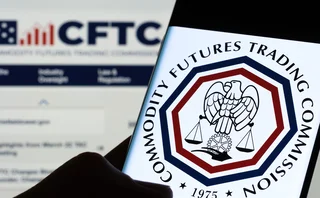
Isda praises letter to Geithner on equity derivatives
The International Swaps and Derivatives Assocation (Isda) has said it “applauds and supports” a letter from 17 investment banks to Timothy Geithner, president of the Federal Reserve Bank of New York, which commits them to improving the efficiency of the equity derivatives market.
The banks said they will make it their “top priority” to create master confirmation agreements for equity derivatives, working closely and speedily with Isda. They aim to confirm all trades made electronically within five working days, and to confirm new (or more bespoke) transactions within 30 calendar days.
From the highest levels of July to September 2006, each bank pledged a 25% reduction in the volume of its trades outstanding for over 30 days by February 2007. They also set a target to complete and amend agreement templates on share and index variance swaps for Europe, the US and Asia by January 30. These would be accompanied by European client templates for index and single-share options and swaps by March 31. By this time, the banks also plan to be using computerised processing for all equity derivatives trades that are eligible for electronic processing.
The letter follows a meeting hosted by the Federal Reserve Bank of New York in September, when dealers and regulators reviewed progress on strengthening the infrastructure of the credit and equity derivatives markets. The letter said equity derivatives transactions took the longest time to confirm of all derivatives trades. Isda also believes equity derivatives represent the most diverse segment of the market as a whole. In September, the industry body valued the outstanding notional value of over-the-counter equity derivatives transactions at $6.4 trillion.
Only users who have a paid subscription or are part of a corporate subscription are able to print or copy content.
To access these options, along with all other subscription benefits, please contact info@risk.net or view our subscription options here: http://subscriptions.risk.net/subscribe
You are currently unable to print this content. Please contact info@risk.net to find out more.
You are currently unable to copy this content. Please contact info@risk.net to find out more.
Copyright Infopro Digital Limited. All rights reserved.
As outlined in our terms and conditions, https://www.infopro-digital.com/terms-and-conditions/subscriptions/ (point 2.4), printing is limited to a single copy.
If you would like to purchase additional rights please email info@risk.net
Copyright Infopro Digital Limited. All rights reserved.
You may share this content using our article tools. As outlined in our terms and conditions, https://www.infopro-digital.com/terms-and-conditions/subscriptions/ (clause 2.4), an Authorised User may only make one copy of the materials for their own personal use. You must also comply with the restrictions in clause 2.5.
If you would like to purchase additional rights please email info@risk.net
More on Regulation
European Commission changes tune on proposed FRTB multiplier
Banks fear departure from original diversification factor undermines case for permanent relief
Supervisors should be mindful of geopolitical risks, says IMF
Shock events cause sizeable swings in asset pricing, institution’s latest report highlights
Bowman won’t commit to stress-testing the tariff shock
Nominated Fed vice-chair stonewalls calls to run ad hoc scenario similar to 2020 Covid test
Fed’s Bowman to ‘prioritise’ SLR exemption for US Treasuries
Reinstating Covid-era relief is a ‘no brainer’, dealers say, as bond markets reel from tariff chaos
SEC’s Peirce calls for rethink of international standards
Risk Live Boston: regulator rejects international calls for bank-like regulation of investors
Tariff turbulence piles pressure on banks’ VAR models
Backtesting breaches start to mount, but too early to tell if regulatory intervention needed
Trading desks want regulators to face down the NMRF monster
Rule-makers in Australia and the European Union are open to changes to the unpopular FRTB test
CFTC’s Doge-inspired drive to enforcement may fall short
Lawyers doubt guidance on rewards for self-reporting goes far enough







